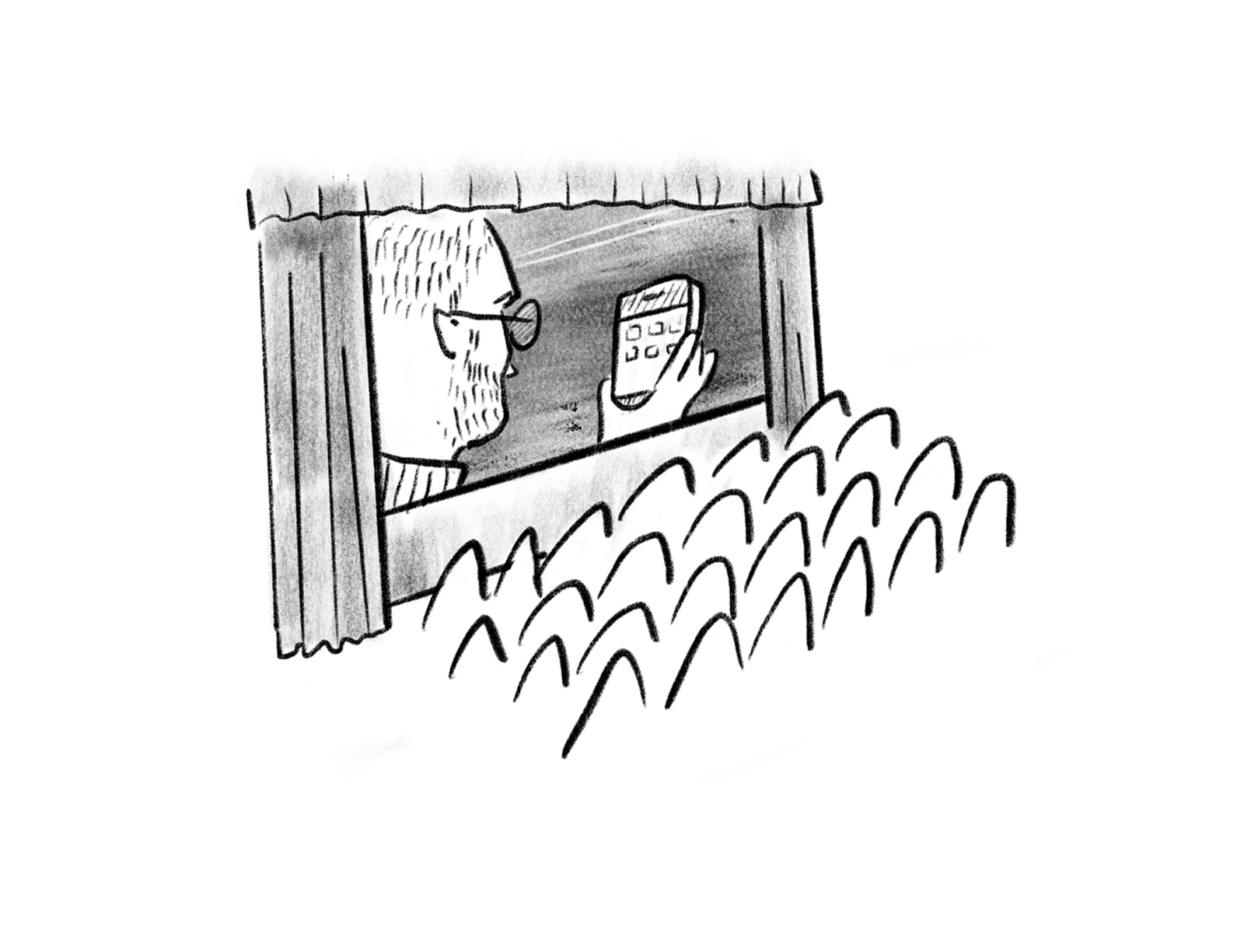
Image by Ivy Sanders Schneider

Image by Ivy Sanders Schneider
Steve Jobs, Danny Boyle’s 2015 biopic, begins with an excerpt from a 1974 television segment. In it, science-fiction writer and futurist Arthur C. Clarke tells an Australian journalist that, by the year 2001, his young son will be able to retrieve “all the information you need in the course of living in a complex modern society” through a small computer console in his home. This opening is, of course, meant to remind us of the once far-off vision that the film’s subject helped realize — and to canonize Jobs as a kind of chosen boy, the vessel for an inevitable creation. The domineering, vain, blowhard behavior that Michael Fassbender engages in for the subsequent two hours can be understood as part and parcel of an inspired, world-elevating mission, one whose unpleasantness makes it all the more impressively real. Or, at least, this is what the film, with its portentous score and tight frames, wants us to think.
Like its Hollywood-takes-on-tech predecessor The Social Network — a dialogue-dense Aaron Sorkin drama with zippy edits and foreboding mise-en-scène — Steve Jobs is typical of the Silicon Valley films of the 2010s. In retrospect, their maladjusted, socially caustic protagonists look less like cowboy renegades than like disaffected and uniquely enterprising nerds, fueling their outsider angst into disrupting lucrative industries and shifting society in the process. At the time, the V.C.-funded version of the antihero archetype was a fairly new proposition, but it slotted nicely into timeworn tropes of America’s big-screen heroes: here were people willing to risk personal ruin and sacrifice their closest relationships in order to build something bigger than themselves. The faraway victims of tech empires, meanwhile, are predictably absent from these scripts. And the movies never go as far as suggesting an alternative to the Apple laptop on which you’re streaming them.
It should come as little surprise that Hollywood’s style of tech storytelling has pivoted after a few years in which supposedly bold, altruistic tech leaders have been exposed as cynical money grabbers, data swindlers, and outright frauds. These days, we’re served up franchise fare like Netflix’s Glass Onion — a murder mystery whose plot hinges on the discovery that a louche tech-bro billionaire is secretly an idiot — and The Dropout, Hulu’s take on the rise and fall of Theranos CEO Elizabeth Holmes. At times, the latter feels like a campy early-aughts coming-of-age series or a hammy Ryan Murphy concoction rather than the story of a disgraced felon who pilfered $700 million from unwitting investors. In the show, Holmes and the cultural moment in which she emerged are made to seem at once absurd, avaricious, and naive. When we watch Amanda Seyfried gyrate awkwardly to “How to Love,” we’re laughing both at the preposterousness of this green-juice-toting twerp rapping Lil Wayne, and at the idea that we trusted this person, or any one person, to change the world in the first place.
Jordan Coley is a critic and screenwriter from Hamden, CT. His work has appeared in The New Yorker, The Nation, and GQ, among others.